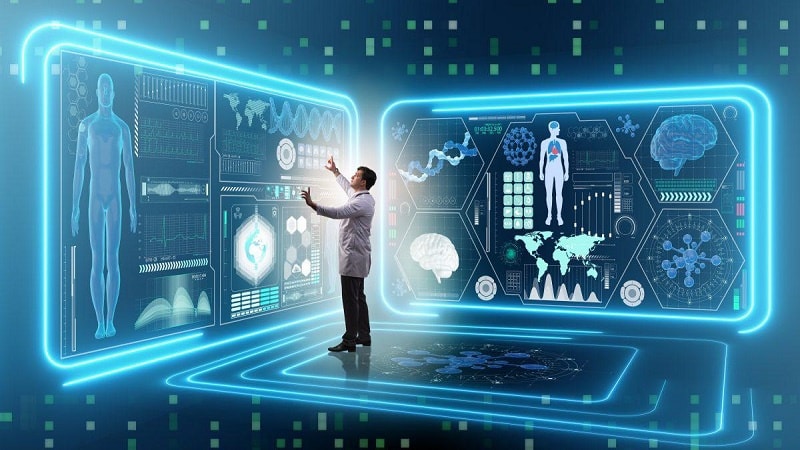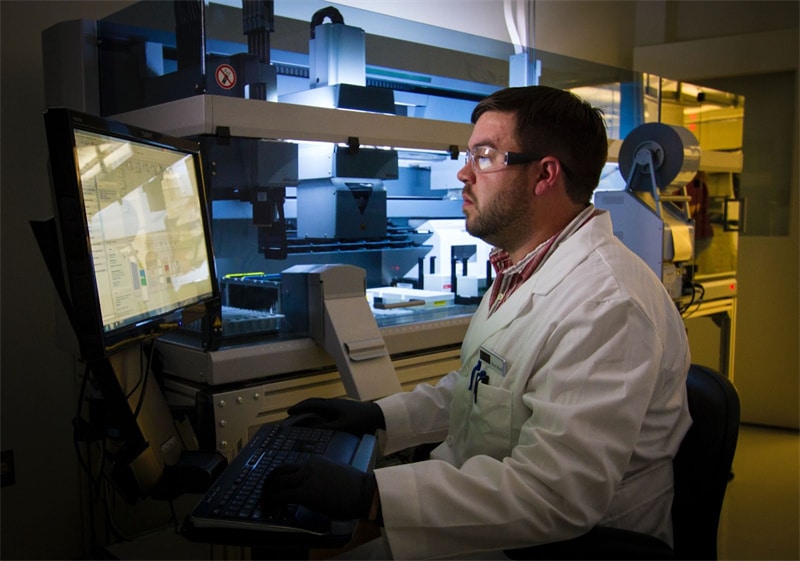
In the world of medicine, much has changed, from the old method of curing diseases to the use of technological breakthroughs to provide efficient patient care. Hence, healthcare providers will be able to provide accurate diagnoses for various health issues, promote timely medical interventions and enhance results.
Artificial intelligence (AI) is one example of a technical innovation employed in the healthcare industry. Compared to standard analytics and clinical decision-making procedures, it has a lot of advantages. Aside from that, all of the diagnostic data will be gathered and used to understand the diseases better so they may be treated more effectively.
So, here are some of the advantages of using artificial intelligence in the healthcare sector.
Identifying Early Diagnosis

Artificial intelligence (AI) and machine learning (ML) have developed as helpful diagnostic aids in recent years. By offering more accurate diagnoses, this technology has the potential to change healthcare.
These tools employ algorithms to spot patterns in the same manner that doctors do. With so much data available in diverse medical problems, algorithms are becoming as effective at diagnosing as doctors. The distinction is that the algorithm can reach findings in a matter of a few seconds.
Advancement of Medical Imaging
Artificial intelligence in screening and classification reduces the time required for classification from 40 minutes to approximately three minutes. This enables healthcare providers to analyze and interpret images in different situations more effectively.
While many diagnostic procedures continue to rely on actual tissue samples collected via biopsy, radiological images obtained by MRI machines, CT scanners, and x-rays provide non-invasive views inside the human body. This way, healthcare professionals will use AI to identify concealed fractures or bleeding throughout the human body, including the brain.
Creating medicines more quickly
When it comes to developing new pharmaceuticals, clinical trials are expensive and time-consuming. Existing drugs are scanned and redesigned by AI processes in the healthcare industry to cure a specific ailment better.
Machine learning enables researchers to discover and screen additional chemical compounds and evaluate existing molecules for potential medicinal applications. This will supplement preclinical testing and allow for toxicity prediction before human testing of new medications. Additionally, it contributes to enhancing clinical trial design (a stage at which many drug candidates fail) by assisting with patient selection.
Providing a better patient care

Primary care can run more smoothly and efficiently with the help of artificial intelligence, freeing up clinicians to focus on more critical and life-threatening cases. Artificial Intelligence-powered medical chatbots provide quick responses to patients' questions and worries about their health and advise them on dealing with foreseeable issues.
With the help of advanced AI-powered segmentation and augmented reality, surgeons can perform delicate surgeries with greater efficiency. Tools like Novarad's VisAR augmented reality surgical navigation system provide surgeons with navigational views, integrated targeting systems, precise instrument tracking, and real-time 3D reconstruction during surgeries.
Additionally, new AI technologies can develop novel surgical techniques by utilizing data from previous procedures. This will help lessen the risk of accidents during surgery.
Key Takeaways: The Future of AI
Artificial intelligence ensures that healthcare workers can help, but it also provides patients with a better quality of life. The medical industry's future lies in collaborating with technology, and to be relevant in the coming years, and it must embrace developing healthcare innovations.










